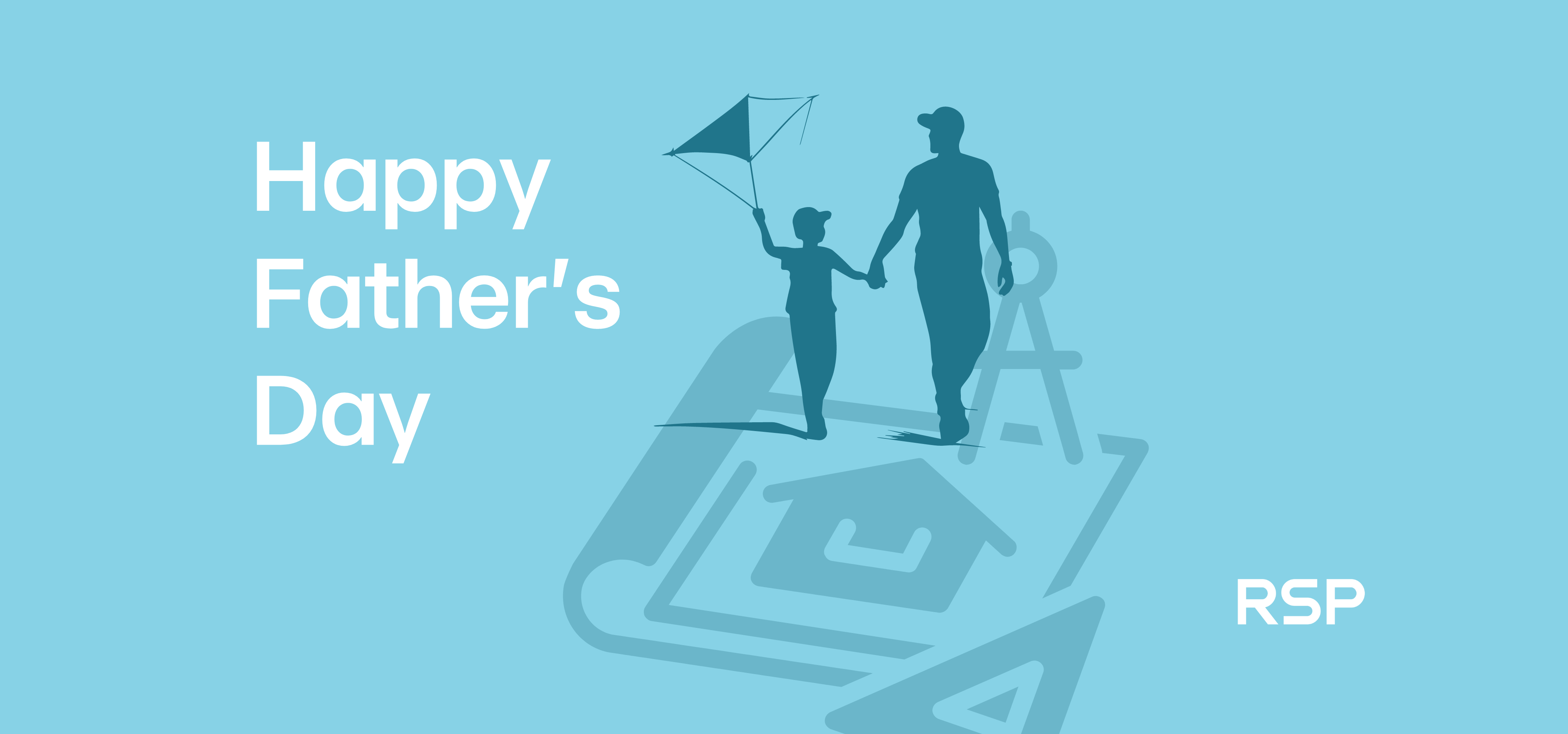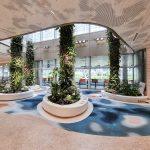This Father’s Day, we take a moment to recognise the incredible Dads at RSP who balance the demands of work and family within the built industry.
In this feature article, we delve into 11 distinct questions, exploring how being a father shapes their work, inspires their creativity, and educates future generations.
Q: How do you balance work and Fatherhood?

"Fatherhood is a journey that continuously brings out the best in me to achieve work-life balance and maintain a harmonious home environment.
Just like leading an organisation, fatherhood requires adaptation and growth. As our children grow, we face new challenges in staying connected, communicating effectively, bonding, and providing them support in the background. These efforts are essential.
I believe a successful father is trusted and admired by his children. Right now, my children keep me feeling young, energetic and busy."
Beh Swee ChiewCEO

"I always try to keep my weekends free for my son as much as possible by finishing up all my work on weekdays. He does the same with his school homework. In this way, we can our father-son bonding time to watch anime, go swim, jog or cycle together while discussing about life philosophies."
Alvin LimDirector, Marketing and Communications
Q: How does Fatherhood influence your role at work?

"As a father of three, I often prioritise my family's needs over work commitments. This approach helps me stay focused at work, ensuring I finish tasks on time and have more time for my family.
Furthermore, being a father enhances my empathy towards colleagues who also have family responsibilities. I understand the challenges of balancing work and family life, which fosters a more supportive workplace environment.
Lastly, fatherhood motivates me to excel in my job. My desire to secure a stable future for my children drives me to work harder and perform better."
Chito ReyesTechnical Lead
Q: How has your career influenced your child’s career?
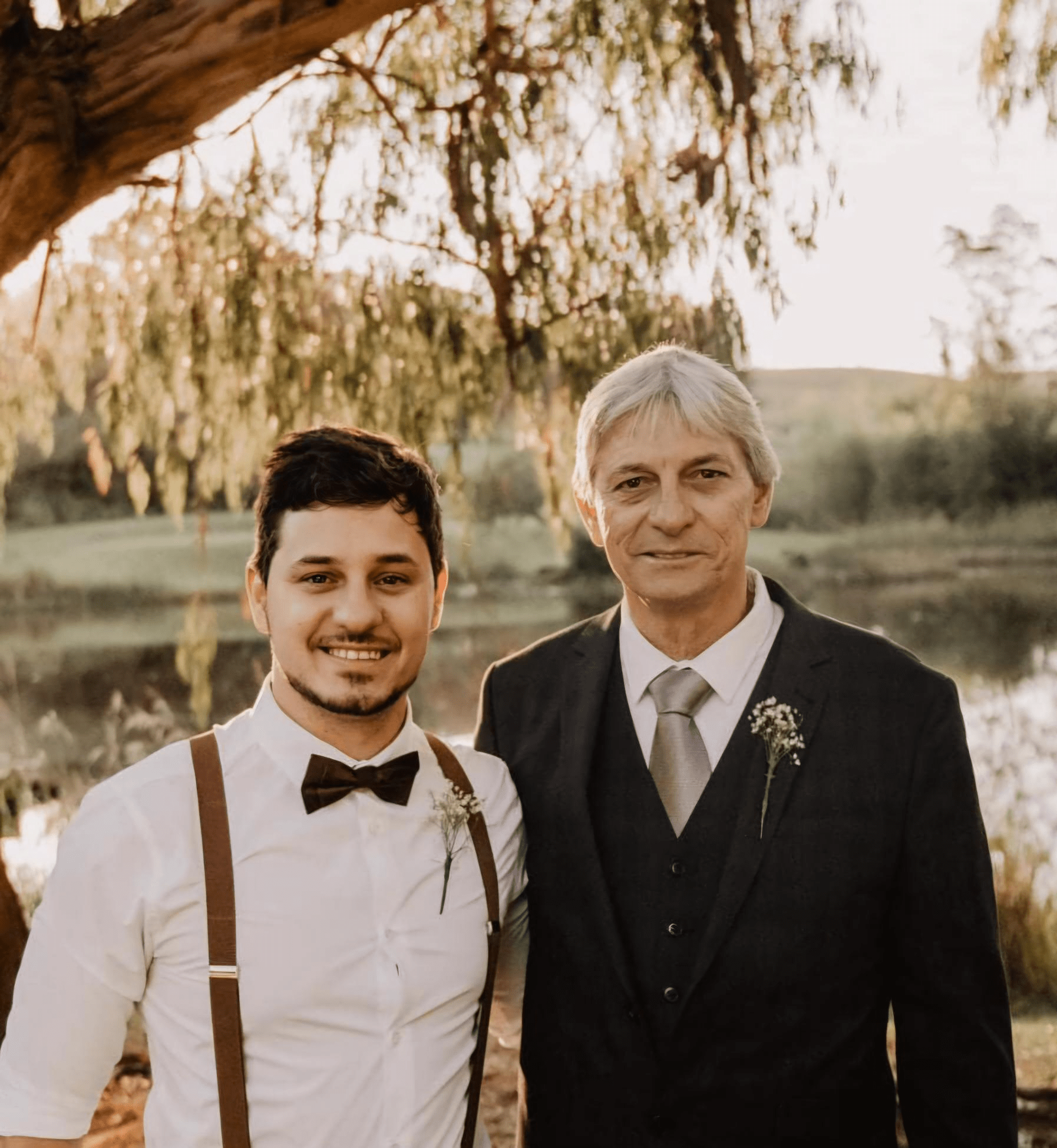
"Growing up alongside my father in the construction industry provided me with a good understanding of the built environment from an early age. Witnessing how the planning, the creative problem-solving, and dedication that went into each project started a passion within me that would later help me begin my journey into Architecture.
From a young age, My father's dedication and expertise served as a guiding light, inspiring me to pursue a career where I could blend creativity with practicality to create spaces that are not just functional, but also prioritise the well-being of others in the projects i've worked on."
Riccardo RacitiProject Architect
Q: Has there been any architectural/construction lessons shared with your child?

"I learned self-reliance and creative application in building traditional houses from the past under the limited economic conditions of our ancestors. This includes using local materials such as bricks, wood, bamboo, and terracotta tiles in the wall and roof structures with the lowest possible cost."
Nguyễn Văn NamSenior Architect
Q: In what ways do you think being a Father has impacted your creativity and problem-solving skills in your role as an architect/engineer?

"Becoming a new father means reshaping my life to accommodate a newborn in the family. Much of my newfound expertise in baby care comes from support groups on WhatsApp, Telegram, forums, and social media.
I'm astonished by the wealth of knowledge parents share so generously. This experience has also highlighted parallels in my architectural work, revealing how much we can solve design, technical and logistical challenges through collective wisdom and shared experiences."
Neo Wen HaoSenior Associate
Q: What are the most rewarding aspects of being both a father and an architect/engineer?

"Being both a father and an architect can be incredibly rewarding, albeit in different ways. In both roles, there's a sense of fulfillment derived from creating, nurturing, and positively impacting lives, whether it's within your family or through your professional endeavours.
The joys of parenthood intersect with the satisfaction of building and designing, making for a multifaceted and enriching experience."
Nguyễn Minh CườngArchitect
Q: How has your approach to project management changed since becoming a father?
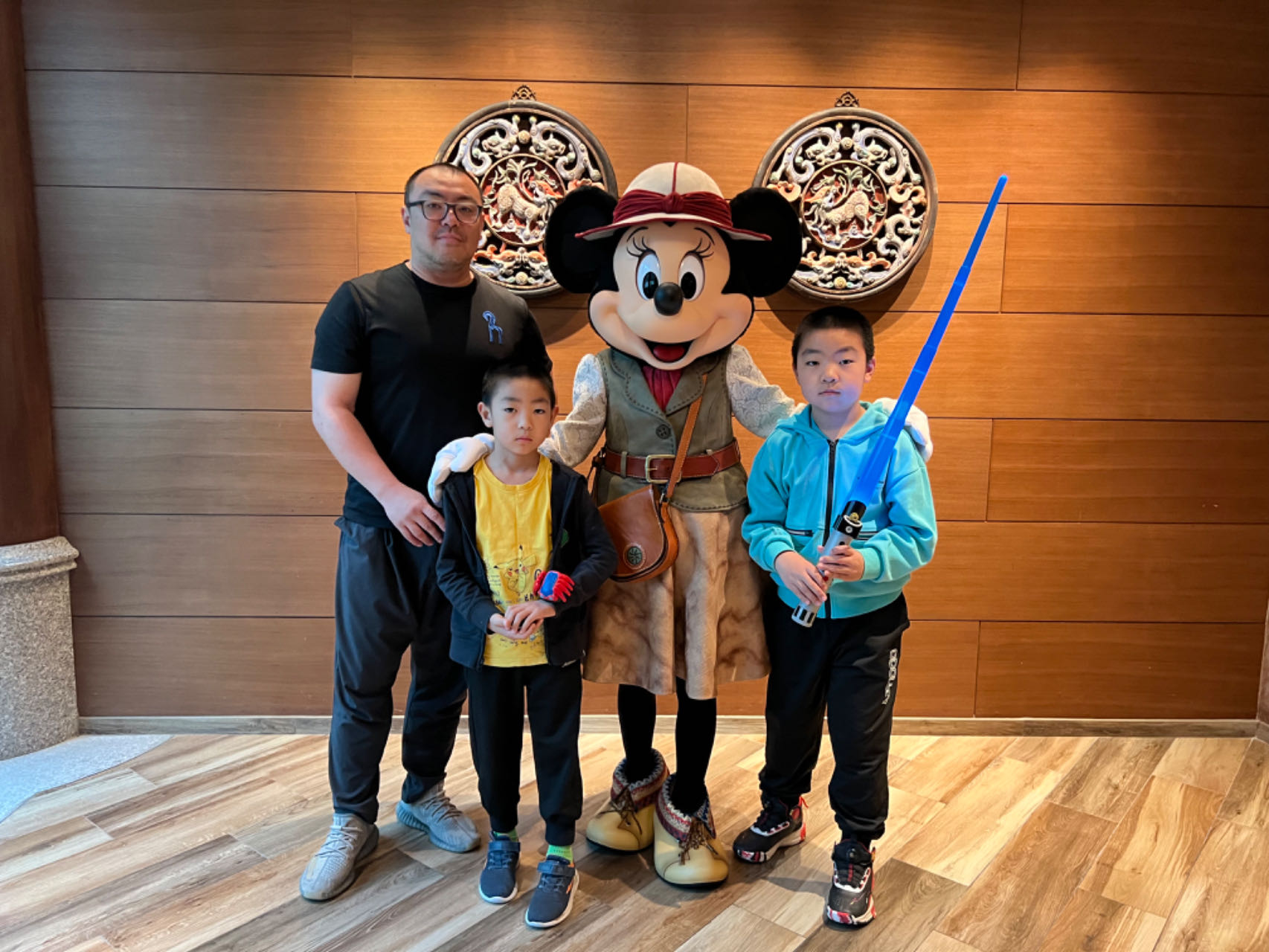
"Becoming a parent requires time management and prioritisation, leading to a more efficient and focused approach to project management, while balancing work and personal responsibilities."
Meng LiangDirector
Q: Has there been some changes in how you manage your projects after becoming a father?

"While there isn’t a direct correlation between fatherhood and project management, some general principles still apply:
Prioritisation: Like managing projects, prioritising family and work responsibilities becomes crucial. Balancing both requires effective time management.
Adaptability: Parenthood teaches flexibility. Similarly, project managers must adapt to changes, just as projects evolve.
Empathy: Understanding stakeholders’ needs and emotions is essential in both family life and project management.
Resilience: Fatherhood often involves unexpected challenges. Similarly, project managers need resilience to handle project setbacks and changes."
Ta Tung LamSenior Architect
Q: How has your daily routine evolved to accommodate both your architectural career and fatherhood, and what moments do you cherish the most?

"Balancing work as an architect and fatherhood is like juggling blueprints and bedtime stories. My day starts with taking my daughter to school, followed by client and consultant meetings. After work, dinner with her is a joyful routine, filled with laughter and sharing our days. Bedtime is my favourite, where reading her a story helps us both unwind. Her smile and hugs recharge my energy, reminding me that the most rewarding projects are the ones built with love.
Balancing these roles requires creativity and patience, but the laughter and love from my daughter make it all worthwhile."
Mai Đức HưngArchitect
Q: How has Fatherhood impacted your leadership style?
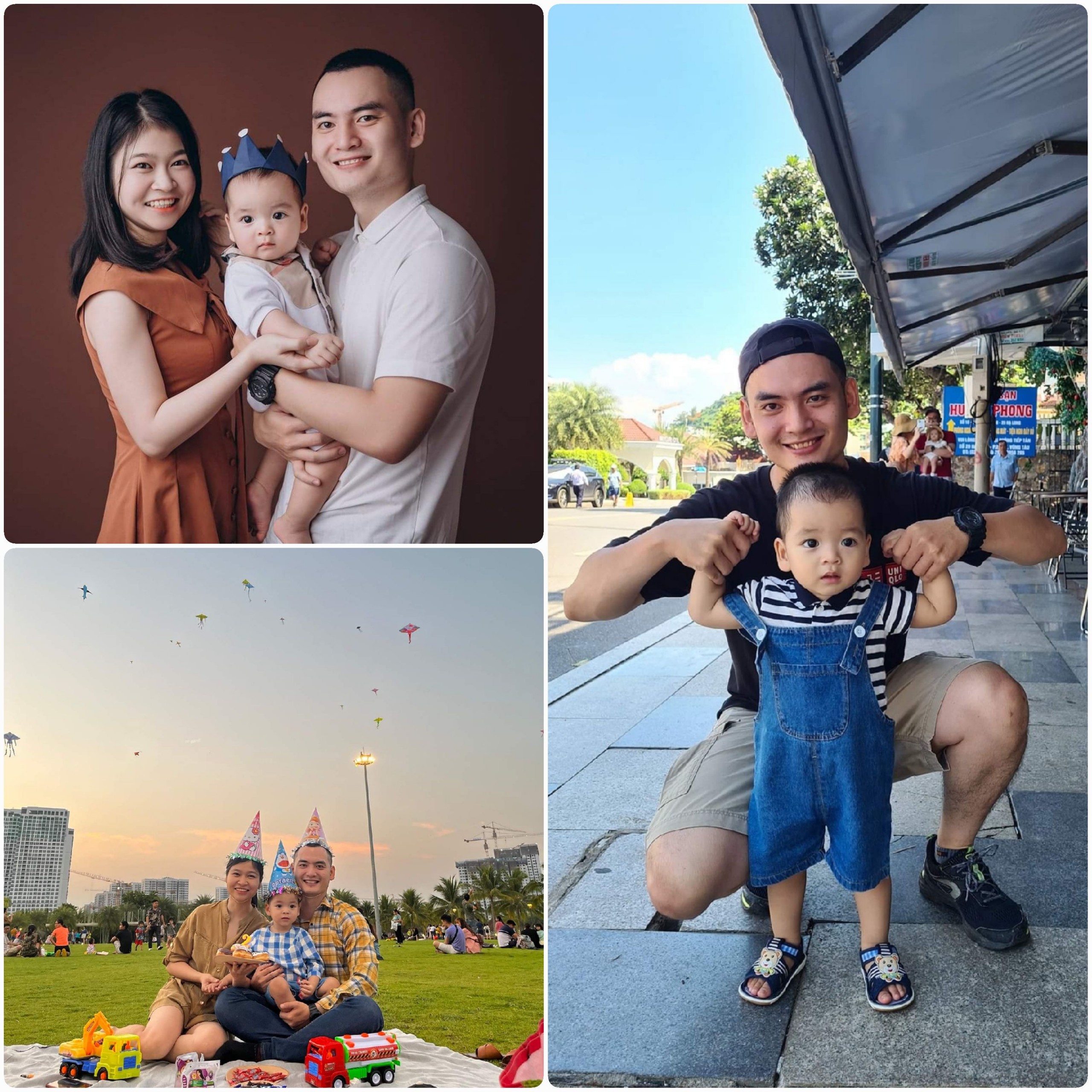
"As a father, I've learned valuable lessons that shape my leadership in architecture. I foster a supportive environment for my team, providing guidance and encouragement just as I do for my children. Active listening and empathy are crucial, and I prioritise understanding my team's perspectives to build trust and strong relationships.
I lead by example, modeling integrity and responsibility, and set high standards for myself and my team. Patience and resilience are key; I remain calm during challenges and encourage perseverance and adaptability. I also emphasise work-life balance, promoting a culture of self-care and mindfulness to ensure a happy and productive team.
Fatherhood influences my leadership by fostering support, empathy, example-setting, patience, and work-life balance, creating a collaborative and successful team culture."
Nguyen Tan ThangSenior Design Architect
Q: What advice would you give to aspiring architects who are also fathers or plan to become fathers?

"Learning design has endowed us with excellent logical abilities. The principle of prioritising character in design applies equally to educating the next generation. From the logical framework of design, we derive a more rational and artistic approach to all endeavors."
Han Yan HuiExecutive Director
Fatherhood is a transformative experience that deeply influences various facets of life, including our professional roles. Through our conversations with industry experts, we gain invaluable insights into how being a father brings unique perspectives and experiences to the workplace and our personal lives.
From enhancing their empathy, patience, and resilience to improving their leadership and project management abilities, fatherhood fosters creativity and innovative problem-solving skills—essential qualities in fields like architecture and engineering.
Happy Father’s Day to all the remarkable fathers who continue to inspire us with their dedication and passion both at home and at work!

